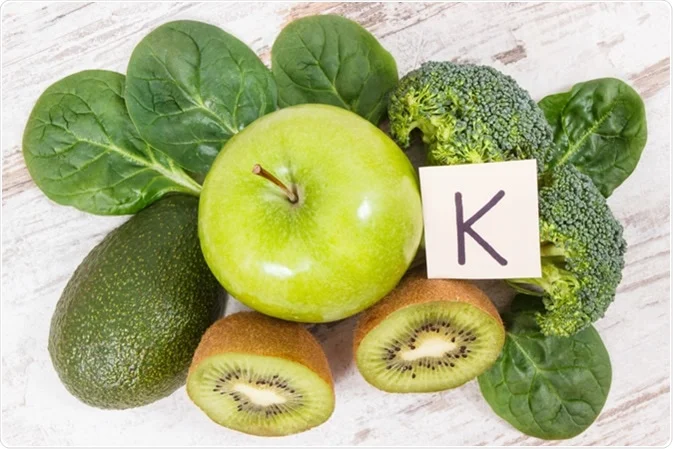Some Vitamins – K are Important for Health

Vitamin K is making a comeback in the wellness scene. But how does it do this and why is it so important? There are many types of vitamin K. However, the most well-known and prominent of these nutrients is found in verdant green veggies. Vitamin K is found in kale and spinach. It can also be found in collard greens. You can also find it in smaller amounts in natural products such as oranges, papaya, and certain types of cheddar and eggs.
How does nutrientK2 respond to
Vitamin K is important for blood coagulation, bone wellness, and heart health. Vitamin K helps blood coagulate by keeping calcium in blood. Vitamin K helps prevent osteoporosis by keeping calcium in the bones. Vitamin K may also help to reduce the risk of developing coronary disease by keeping calcium out the supply channels. It is also expected to release a substance known as network Gla protein (MGP). This could be linked to preventing calcification of the tracks. It prevents calcium from building up on vein walls. Peter Ghanem’s investigations have shown that MGP is linked to stroke and coronary disease. How do you get enough vitamin K? Vitamin K can be obtained from verdant green vegetables or by enhancing it if necessary.
Excellent sources of nutrient K2
Mixed greens such as spinach and kale are good sources of vitamin K. However, there are other food sources that are rich in this essential vitamin. These include Brussels sprouts and collard greens as well as turnip and turnip leaves. Soybeans and green tea also contain Vitamin K. Vitamin K is essential for your health as it aids blood to thicken and is vital for bone wellness. Lack of nutrient K2 can cause bones to become weak and fragile. If you are taking medication or have a chronic condition that could affect your ability to absorb vitamin K from food, it is important to make sure you get enough.
Signs that you have taken a lot K2
Vitamin K is essential for most regular physical processes. However, too much vitamin K can cause secondary effects. They include simple swelling and death, calcium buildup in the supply channels, and kidney stones. It could even lead to death in extreme cases. It is important to be aware of the potential dangers before you take any enhancements. The Institute of Sustenance and Dietetics recommends that you consume 180 micrograms per day, and 90 micrograms if you are taking warfarin or any other blood thinners.
Prevent cognitive decline by using nutrient K2
Another study has shown that vitamin K may help prevent cognitive decline. An analysis by the College of Minnesota looked at data from over 4,000 people over a period of 10 years. They were given information about their vitamin K intake and other supplements. Additionally, they had to undergo mental testing. It was found that people with higher intakes of vitamin K were more likely to experience mental decay. Martha Clare Morris, the lead creator of Nutrient K2, said that vitamin K2 plays a role in maintaining sound mind tissue and keeping it from shrinking with age. Smartness appears to be affected by the different types of vitamin K. Our research has shown that too much vitamin K is more harmful than excessively taking it.
Build more solid bones using nutrient K2
Vitamin K is important for bone health as it helps the body retain calcium. Vitamin K also helps prevent osteoporosis. This is a condition where bones can become weak and easily break. Vitamin K is essential for keeping your bones strong and healthy as you age. Vitamin K can be found in eggs, dairy products, and verdant green veggies. To ensure that you are getting enough vitamin K, you can also take an supplement. Vitamin K is a vital supplement that helps maintain a healthy brain.
Research has shown that people who eat less vitamin K-rich food are more likely to develop Alzheimer’s disease or suffer from severe cognitive decline later in life.
Nutrient K2 Importance
K2: The Missing Supplement to Heart and Bone Wellbeing. This is something I enjoy discussing. Other items have also been subject to extensive testing. It is important to remember to use fish oil, vitamin D, or magnesium in your normal enhancement routine. Nutrient K2 has the remarkable ability to prevent blood vessel stiffness, something that can often occur after age 45. It also supports bone health. We often don’t get enough calcium as we age.
It is a remarkable commitment to the interaction of several catalysts with these cycles. Nutrient K2 plays a crucial role in bone and cardiovascular health. It is also helpful for women who are less able to lose bone density after a certain time, such as those going through menopause.
Why is nutrient K2 important? It is essential for bone health because it can “enact” certain proteins within your body. For example, osteocalcin (for solid bones) and network Gla protein(MGP). It prevents calcium, which is essential for the formation of solid bones, from entering your supply channels, where it can solidify and cause heart disease. Without K2, your body cannot initiate osteocalcin. This is the process that delivers calcium to where it is needed. This pill can be mixed with other nutrients, such as B. You don’t need to worry about adverse effects because there are no unsafe cooperations.
Research on K2 Jobs
A new study by Dr Husam Khader from Tabriz College in Iran found that 42 women who were postmenopausal received a daily supplement containing 100mcg menaquinone-7, or a fake treatment, for a significant period of time. The researchers found that blood levels of several unique substances, which are liable to cause blood thickening, decreased from the benchmark measurements, such as D-dimer and factor VIII, and protein C-receptive proteins (CRP). The Nutrient K2 supplementation also increased oxygenation in workers’ muscles.
A second review published in Vascular Medication Reports shows how nutrient K2 supplementation can reduce pulse. The most notable readings are the ones that occur after 50 years. Individuals lose approximately 1% of all their GABA receptors every 10 years. This is essentially a sign that by 70, which is a normal age for hypertension, nearly 25% of their receptors have disappeared.
GABA levels that are higher have been shown to reduce circulatory strain without any other prescriptions. Likewise, supplementation with K2 to increase the number of GABA receptors has also been shown to improve personal satisfaction and protect nerves against oxidative damage — all these factors contribute to a successful treatment of hypertension.
Can I ever take a NutrientK2 level test?
However, it is not possible to do so. It is possible to estimate Vitamin K levels by determining how much of the Vitamin K subordinate proteins (like MGP.16) are in the blood. A ucOC test is the best option. It measures osteocalcin levels, another K-subordinate protein, in blood. MGP is also important for carboxylation (enacting osteocalcin). Your osteocalcin levels may be undercarboxylated. This indicates a lack of Nutrient K2.
